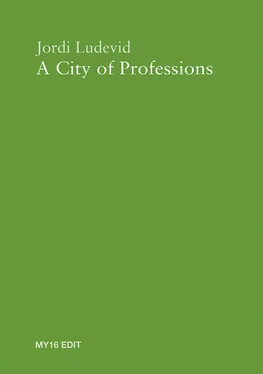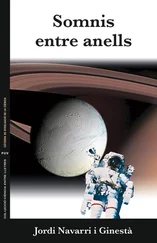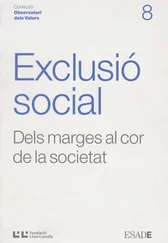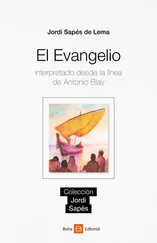That commitment extends to global challenges, cited with well-aimed conviction in A City of Professions, such as the Sustainable Development Goals (SDGs), which are inherent to the essence of the liberal professions, as specified by UMPL President Eric Thiry at the second edition of the National Congress of Professions (2020).
With this book, the architect Jordi Ludevid reflects with academic rigour, laudable enthusiasm and profound hope on the need to rethink the relationship that exists today between cities and the professions, highlighting the Greco-Roman origins and the ties that once existed between the burgs and the guilds, and proposing a roadmap to achieve the participation of our subsector in the decisions that both governments and public authorities have taken in the past and, unfortunately, are still taking in the present without taking into account the expert opinions of the people who dedicate their professional lives to safeguarding the general interest, protecting health and guaranteeing people’s safety.
As a masterful thinker of our times, Jordi Ludevid does not remain anchored in the immediate future. After diving into the profession he knows best, architecture, he looks toward the horizon using the longest zoom lens, in order to recommend a more than likely antidote to the de-professionalisation that is creeping up on us: the alliance between professions. With social agents. With public and private institutions. All of this, to promote the foundation of a citizenry with critical thinking and, above all, with robust rights. The kind that the 21st century and the ever-changing world in which we live deserve.
Victoria Ortega
President of Unión Profesional
Vice-President of CEPLIS
Vice-President of UMPL
Our Common Space
Jordi Ludevid, my predecessor, a good friend and colleague, asked me as dean of the Architects’ Association of Catalonia to write a foreword for his book A City of Professions. For me, it is both a duty and a pleasure. There is no doubt that one of the association’s objectives is to give visibility to its professionals and their research. It is also a pleasure because Jordi Ludevid, an architect who has held every possible institutional post over 20 long years, and I have long shared a firm commitment to our beloved profession: architecture.
The structure and the summary of the book demonstrate the immense and original work it offers to us all. Where words bridge gaps and silences undermine, we have been silent for too long. From Hippocrates to Max Weber, understanding our origins has made us more human. Professional practice today shows us how the boundaries between different professional disciplines are blurring. And it also shows us how transversality is taking place in neighbourhoods and cities. And how professionals are joining forces, sharing and generating knowledge to respond to the needs of the present and, especially, of future generations.
In parallel, Jordi Ludevid describes a positive and important story for our profession as artisans of habitability: the main guarantor of the development of a modern institutional and professional project. Through a very detailed, in-depth and global analysis, he gives visibility to the professions, vindicating them as an integral and indispensable part of society – a part that is often invisible, forgotten or simply unrecognised. He describes six missions that support the participation of professionals as essential to the proper functioning of society because they provide practical knowledge and civic responsibility.
The analysis of the current reality of professional associations provides concepts to be debated in order to define the future of professional organisations in our current context. The tools are deontology, self-regulation and prescription at the European level. And it falls to all of us to recognise the process of individualisation that is resulting, among other effects, in the diversification of the modes of professional practice. The underlying problem is the «real» reality, the civic knowledge that professionals represent; it is the citizenry, it is the city.
Professions and progress, as this book shows us, go hand in hand. From this convergence we discover how the role of professionals is and will remain key in the definition of medium and long-term social strategies characterised by innovation, creativity and the contribution of added value in a world that is facing pressing challenges.
The fight against climate change, social inequalities or the creation of sustainable communities are some of these challenges, already recognised among the Sustainable Development Goals. And the professions have a very important role to play in solving them. Cities are the setting and the point of intersection where all the resources must be employed with maximum agility and precision, with maximum efficiency. Today, as humanity is immersed in the struggle against the COVID-19 health crisis and the associated economic crisis, this book offers an exciting narrative and lays out paths that give us hope.
Thus, we should applaud it and give thanks for the generosity of the effort that went into this book and its content, which is unprecedented and original – and also necessary. In response, the COAC is reasserting its commitment to continue building bridges of collaboration with all the professions. After all, architecture is a spatial art, an art of space, where we all come together, where human rights and global challenges are decided and substantiated: the city. As we are all a part of the necessary change, there is no time to lose. Thank you, Jordi.
Assumpció Puig i Hors
Dean of the Architects’ Association of Catalonia
Filling a Gap
There are hardly any studies on the history, nature and function of the professions, despite the fact that the subject is of the utmost theoretical and practical importance. The professions are, from a private perspective, the way most people earn their living; and from a public perspective, the system of professions is what shapes a modern and prosperous country. This gap is brilliantly filled by Jordi Ludevid’s book, which is particularly welcome for this reason. It is also on target in presenting its subject in the sphere that is most appropriate to it, the municipal sphere, hence the title A City of Professions. Moreover, it does not limit itself to an isolated presentation of the subject matter but links it to another issue that is of the utmost interest, the citizenry. Because the members of a community must aspire to be citizens as well as professionals: professionals who carry out a trade, in which they provide a service and receive remuneration and, at the same time, or even before that, citizens who are aware of their dignity, which is priceless. And this book does not merely lay the groundwork for a definition the professional fact and its characteristics; by connecting professional activity with the duties of citizenship, it creates the context for a civic vision of the professions.
Javier Gomá
Philosopher
Director of the Juan March Foundation
An Unprecedented Contribution
Jordi Ludevid’s book is an unprecedented and original contribution to the study of professionalism as the constitutive virtue of a new citizenship, demanding and committed to the needs of our time. In the analysis of professional excellence, the usual approach is to focus on aspects related to expert or technical knowledge, not on the exercise of an activity that takes place in democratic contexts, and which answers to the common good. Beyond developing the specialised knowledge that attests to their competence in their field of work, good professionals contribute to generating an ethos, a way of being and doing, which lends a special character to the space in which they carry out their activity. That space is the city, the place where people with diverse interests live together under a shared commitment, by virtue of which, in addition to acquiring an identity as lawyers, journalists, architects or doctors, they assume their responsibilities regarding what we have come to call civic duties.
Читать дальше












